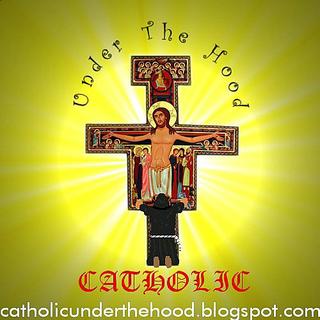Missed opportunity at the Holocaust Museum
On January 12th, the US Holocaust Memorial Museum held a conference entitled "The Catholic Church After the Holocaust: A Reexamination." Given the opportunity to conduct a real scholarly examination of the historiography of Catholic Church actions leading up to and during WWII, the Museum demonstrated that it was more interested in agendas than in history.
The panel was headed by New York Times columnist E.J. Dionne and composed of Father John Pawlikowski and John Carroll [sic - It was in fact James Carroll] - none of whom is sympathetic to the Vatican's WWII history. There are lots of others who could have participated in this panel to give other perspectives, but that would have kept the Holocaust Memorial from being able to fulfill it's agenda of blaming Catholics.
As a historian, perhaps the most glaring offense of this panel is that none of the members of this panel is a professional historian. This is not to say that non-historians cannot voice an opinion on this issue, but it does mean that if you want to look at the history of the Vatican's relationship to the Holocaust - you need to eventually show that your conclusions survive historical examination. Carroll has no doctoral degree. Pawlikowski has a PhD in Ethics.
Yes, the Holocaust Museum had an opportunity to really add to our understanding of this time period, instead it cast doubt on its ability to objectively present the history of that most shameful history.
In case the Holocaust Museum ever seeks to truly have a historical discussion on this issue, might I suggest they contact the following -
Father Pierre Blet, SJ
Guenter Lewy - [who lives in Washington, DC]
Jose M. Sanchez
Rabbi David Dalin
These are all scholars and each has a different opinion as to the Catholic Church and the Holocaust - some are sympathetic, some are not. But each would be far better qualified to answer the question the Holocaust Museum puts forward.
The panel was headed by New York Times columnist E.J. Dionne and composed of Father John Pawlikowski and John Carroll [sic - It was in fact James Carroll] - none of whom is sympathetic to the Vatican's WWII history. There are lots of others who could have participated in this panel to give other perspectives, but that would have kept the Holocaust Memorial from being able to fulfill it's agenda of blaming Catholics.
As a historian, perhaps the most glaring offense of this panel is that none of the members of this panel is a professional historian. This is not to say that non-historians cannot voice an opinion on this issue, but it does mean that if you want to look at the history of the Vatican's relationship to the Holocaust - you need to eventually show that your conclusions survive historical examination. Carroll has no doctoral degree. Pawlikowski has a PhD in Ethics.
Yes, the Holocaust Museum had an opportunity to really add to our understanding of this time period, instead it cast doubt on its ability to objectively present the history of that most shameful history.
In case the Holocaust Museum ever seeks to truly have a historical discussion on this issue, might I suggest they contact the following -
Father Pierre Blet, SJ
Guenter Lewy - [who lives in Washington, DC]
Jose M. Sanchez
Rabbi David Dalin
These are all scholars and each has a different opinion as to the Catholic Church and the Holocaust - some are sympathetic, some are not. But each would be far better qualified to answer the question the Holocaust Museum puts forward.










1 Comments:
I guess truth isn't an issue for the museum so much as finding excuses to cast doubt and suspicion on the Church. Sad, but very typical.
Post a Comment
<< Home